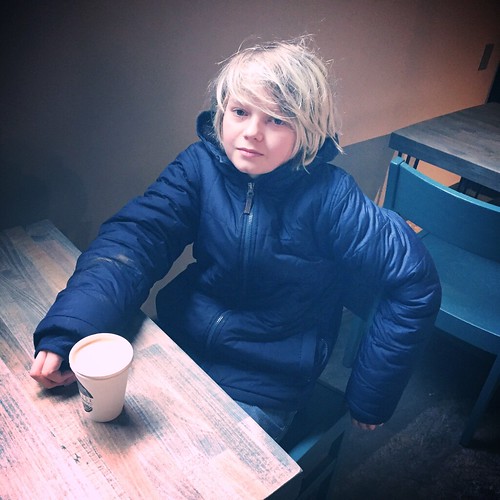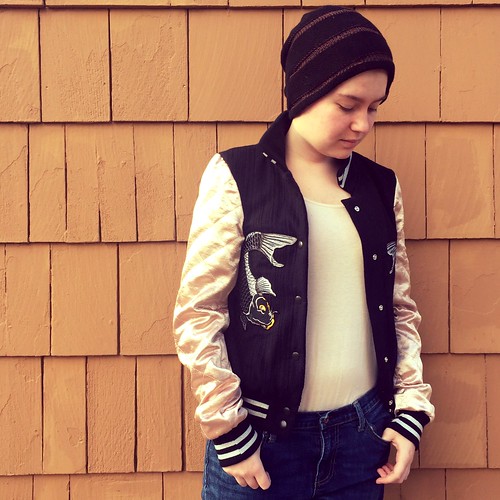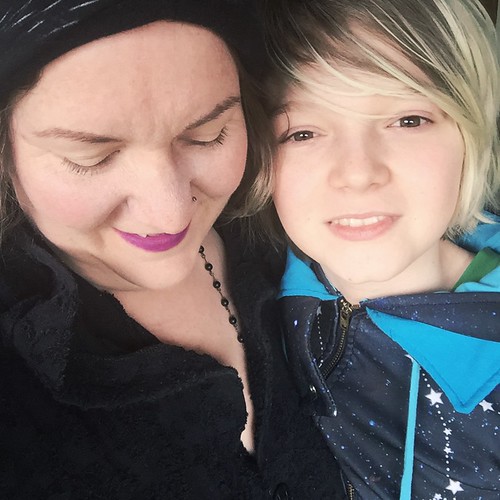I believe I hurt someone’s feelings a little while back, when they were asking me for parenting advice. I said,
“Stop thinking of your baby as being ‘good’. Stop showing off the baby. She’s a person, not a pet. The sooner you abandon these practices the better it will be for you – and your kid.”
I’ve said this before. And if I was a bit direct – well first, I was being asked to be direct. Second: it’s nothing I didn’t learn the hard way.
I did every one of these things and lived to repent, and change my attitude. And I’ve left my own early parenting writings online – you can go back and see I made these mistakes.
Parents do these things, because we’re told to. It’s modeled to us. It’s conflated with “good” parenting.
I remember the intense pressure, even when my children were just months old, to demonstrate I had a “good” baby. A baby that slept through the night. A baby that didn’t breastfeed too much – or too little. (Woe to thee if your baby takes formula! – but that’s a topic for another day.) A baby – then a toddler, then a preschooler – who was clever, and kind, and talented, and cute, and had a sweet temperament.
That’s a lot of goddamned pressure for a baby!
I still see it, everywhere I look. Parents talking about their “good” or “easy” kid. Kids I hang out with, telling me about their accomplishments, clearly thirsty for praise. Kids who just aren’t sure it’s okay to be, that living is enough, that we will protect and guide them, and we don’t need them to be different to love them.
When my eldest was still an infant, a one year-old in our little playgroup was very violent. She was prone to intense physical attacks and screaming; her parents responded in ways that seemed to escalate the tension. Within a few weeks there was a bit of bad feeling amongst the other parents. Looking back, I feel a sense of sadness. This baby’s parents were under a lot of pressure, and the child was responding exactly as biology dictates. It seems silly and capricious that there was a general tone of, “Control your child!” from the other adults. Many of us were comparing and trying to reassure ourselves – we were the better parents, we were doing things right!
What a self-absorbed and unhelpful way for adults to behave. Instead of assisting, we were looking for ways to reassure ourselves we were doing things “right”. We took that opportunity to try to feel better about ourselves, instead of garnering a glad spirit and trying to help.
The whole topic is charged, because of course we generally blame mothers, rather than fathers, for children’s inconvenient behaviors. (On that last phrase I can’t even bring myself to say “bad behaviors” because for a one year old child, hitting and biting is a morally neutral enterprise.) Mothers and femme caregivers receive constant criticism in tacit and direct ways from family, friends, from the media – and from strangers on the street. I’ve had adults literally and figuratively look past my male partner to tell me what I should or shouldn’t do. Mothers are criticized; very rarely helped. It’s utter bullshyte.
So in writing a piece on parenting, the topic already seems so fraught. Most men will ignore these words; very few will even read my post. Women who read here will be prone to feel guilt, or defensiveness.
But what I’m saying here is relevant for us all, and stands to help caregivers the most. Changing my parenting mindset has provided me a great deal of freedom. When I stopped needing to “prove” the way we parented, I started having a lot more energy to enjoy my life. When I stopped entertaining every bit of unsolicited advice, and when I started speaking up about sexist criticism, I grew stronger. When I started asking more of my male partner and expecting it, the children benefitted (as did my partner and I).
Incredibly, I live with two teenagers now. The issues of “good” and “bad” behavior are different than they were when the children were infants. Life’s problems are more complex, and older children are able to obfuscate or hide behaviors and difficulties that may need intervention or assistance. I believe one of the only reasons my children bring their problems to me with such candor, is that I have succeeded to a small degree in showing them true unconditional love. Their problems today are rather grave, and concern both themselves and their friends: issues around mental illness, self-harm, stress, suicide, eating disorders and dieting, underage sex work, ambition and societal usefulness, social isolation and loneliness, and depression.
I shudder to think what they’d be hiding, or struggling with, if I’d kept with the “good kid”, and “see what my kid can do!” mindsets.
And thus I seek to excise the “good kid” and “see what my kid can do!” strictures in my brain – with surgical precision.
It’s no easy task, as I was raised with this ish – and it’s all around us.
Now, it’s natural to love our children so much. It’s perfectly human to be amazed at how well they cope, or learn, or grow. What is the difference, I imagine someone asking, between being proud of your child and being a smug jerk?
But see I think we an live without either, really. First: what do I have to be proud of? My children’s successes and characters aren’t mine. They don’t belong to me. Being “proud of” them makes little sense.
I don’t tell my kids, “I’m proud of you.” I tell them either, “I’m impressed by you,” or, far more often, several times a day: “I love you.”
I talk to them the way I’d talk to a dear, close friend – in part because they are both my dear, close friends – but also as an act of restraint and mindfulness. I do not own my kids. I did not create them. They came through me, and I have helped them a great deal, probably more than any other human being has or will. I carry a special place in their lives and this is an honor to be so loved and so esteemed. But they are their own beings. It is not appropriate for me to unnecessarily add one iota of pressure to be “good”, to be esteemed or liked. They will benefit if they find these values within themselves; I am their influence and their guide and perhaps their mentor (if they put me there), but in an essential way they must forge this path on their own.
It is my job to try not to abuse my maternal influence. In that light, I have made so many mistakes it would be easy to falter, and to give up. To look at how well they’re doing and just think it was down to me, I’m a great mom, everything is fine, no need to continue to look deeply.
But that would be an error.
Because as for the smugness, let me put it this way. If you and your child(ren) live long enough, one day your child will make a choice, or fail to make a choice, that deeply angers or frightens you. On that day the mental and emotional constructs you have built, will collapse. Every penny you put in the “good kid” jar all these years will come shattering over your head with force. The cognitive dissonance will be massive, and painful. Some parents are so unable to cope with this that they retreat into a sense of unreality; like the parents who defend their child who raped, or murdered, or stole. They have lost their ability to be helpful, and they are teaching their child denial and disavowal. This kind of situation creates a great deal of suffering for all involved.
So my advice: strip yourselves of this “good kid” garbage – while it’s still relatively easy. It will help you all so much, as they get older.
Tough words, here? Maybe. No one who knows me or my children would claim I didn’t love them deeply, and wasn’t affectionate and kind. I am demonstrative; I am silly. But beneath it all there is a discipline, which I have come to find as useful a practice in parenting as in anything else I’ve enjoyed and excelled at.
Happy Mother’s Day; may it be peaceful and safe; may you enjoy happiness and health.


